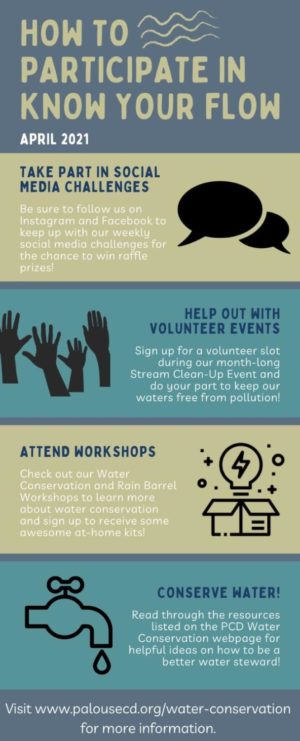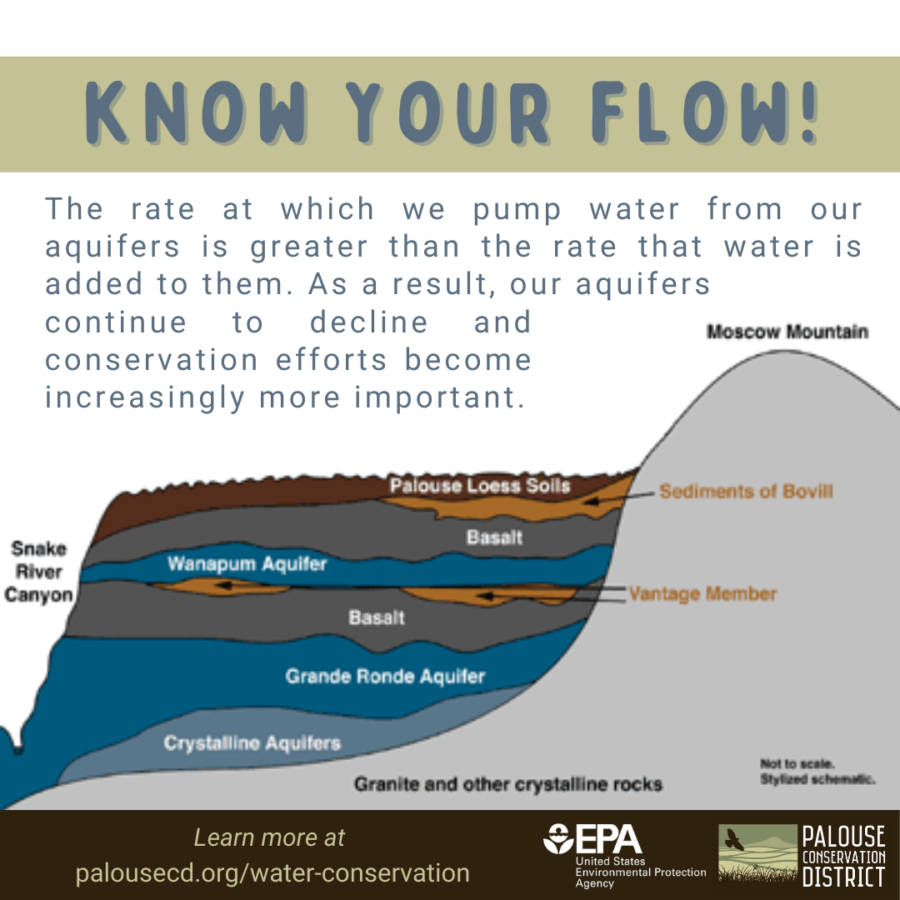Palouse Conservation District addressing declining groundwater levels
Palouse aquifers declining at unsustainable rate; events planned to educate, engage community with water conservation
The Know Your Flow campaign is funded through an Environmental Protection Agency grant from August 2020. The grant’s purpose is to support the Palouse Basin Aquifer Committee in bringing awareness to groundwater usage.
March 31, 2021
The Palouse Conservation District is hosting a month-long Know Your Flow campaign to educate community members on the declining groundwater levels of the Palouse and how to address the issue.
Jodi Prout, PCD education and outreach coordinator, said groundwater is the region’s primary source of water. The declining levels of Palouse’s natural aquifers are a cause for concern.
The Palouse region lacks adequate water reservoirs and other options to sufficiently supplement the Grand Ronde and Wanapum aquifers. Non-point source pollutants from agricultural and urban runoff have contaminated surface waters, eliminating the source as an option, she said.

“Groundwater is pretty essential for life here on the Palouse,” she said.
The Palouse Basin Aquifer Committee is working with WSU and the University of Idaho to calculate how much groundwater remains in the local aquifers. The researchers have been unable to pinpoint how much water remains, but the aquifers are declining at an unsustainable rate, Prout said.
“A shortage of clean water … could really cause some issues for our communities,” she said.
The water from the aquifers is used throughout the local college campuses, homes and businesses. The supply is finite. The community needs to be involved in the conservation process, Prout said.
Anyone can be a part of the solution by practicing water conservation at home and work. Cutting shower lengths to five minutes a day could potentially save thousands of gallons of water annually, she said.
Low-flow showerheads and toilets are also easy ways to participate in the process, she said. Gardeners could choose to water in the evening or early morning. Everyone should be mindful of how much water they are using.
“It really is going to take a community-wide effort to make sure there is enough water for all of us,” Prout said.
The Know Your Flow campaign is funded through an Environmental Protection Agency grant from August 2020. The grant’s purpose is to support the Palouse Basin Aquifer Committee in bringing awareness to groundwater usage, Prout said.
The grant is geared toward environmental education and will engage the community through workshops, challenges and other activities during the April National Water Conservation month, she said.
Community members can register for the April 7th Everyday Water Conservation workshop and other events on PCD’s website. The first 50 participants will receive a free water-saving kit that includes home devices designed for conservation, according to the website.
Another workshop is available throughout April, teaching individuals how to build a rain barrel. In addition to the workshops, the 16th annual Pullman Stream Clean-Up will be hosted the first two weekends of April, according to the website.
K-12 students can participate in a student art contest. Submissions are due April 30, according to the website.
“The best way we’re all going to learn is through that assimilation of knowledge,” Prout said.











